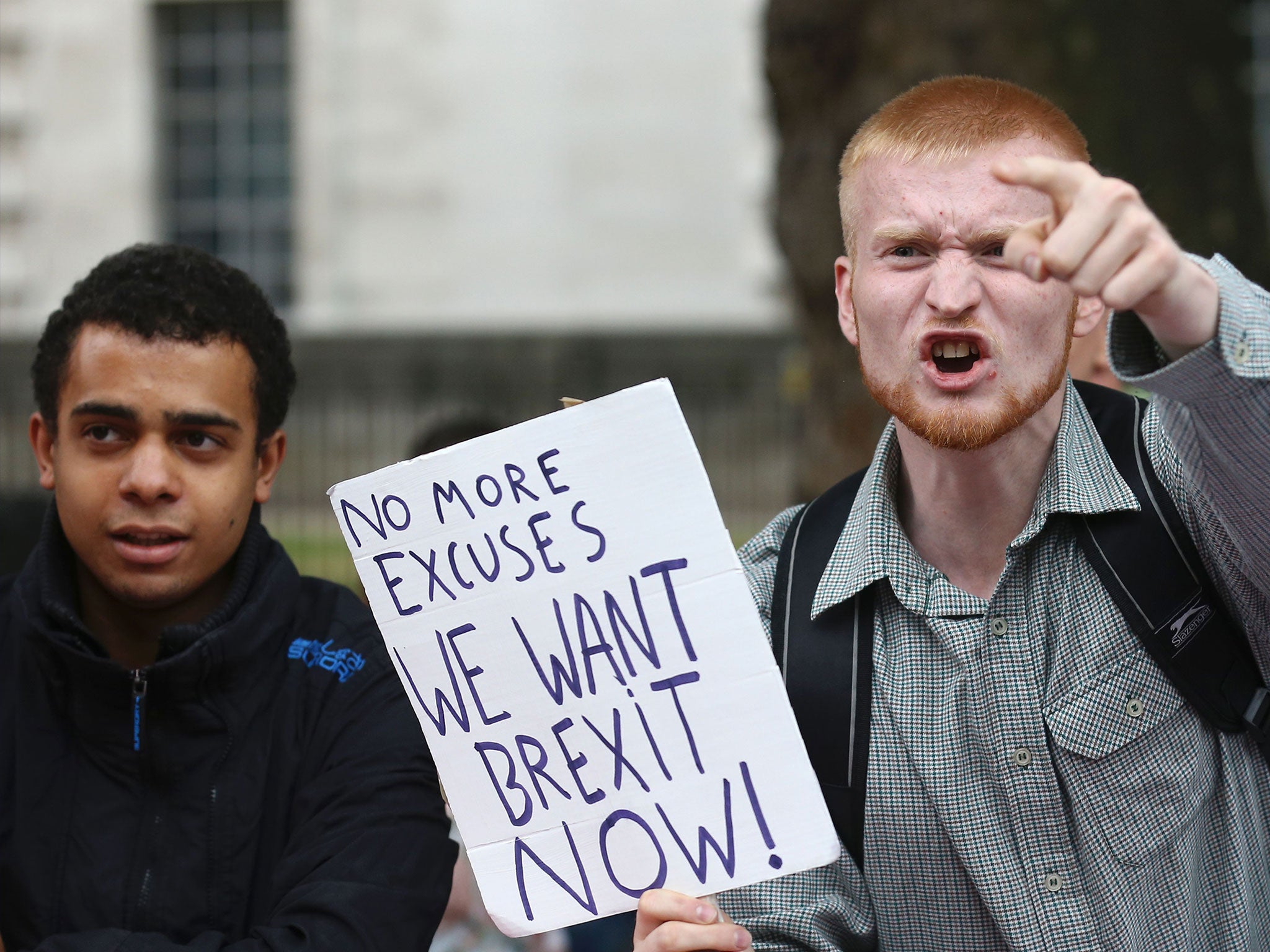Nearly half of British electorate feel 'disgust' towards Brexit voters on other side, study finds
A third of voters felt like crying after the result was announced, poll reveals

Your support helps us to tell the story
From reproductive rights to climate change to Big Tech, The Independent is on the ground when the story is developing. Whether it's investigating the financials of Elon Musk's pro-Trump PAC or producing our latest documentary, 'The A Word', which shines a light on the American women fighting for reproductive rights, we know how important it is to parse out the facts from the messaging.
At such a critical moment in US history, we need reporters on the ground. Your donation allows us to keep sending journalists to speak to both sides of the story.
The Independent is trusted by Americans across the entire political spectrum. And unlike many other quality news outlets, we choose not to lock Americans out of our reporting and analysis with paywalls. We believe quality journalism should be available to everyone, paid for by those who can afford it.
Your support makes all the difference.Nearly half of voters felt disgust towards people who voted differently from them in the referendum on Britain's membership of the European Union, according to a study.
Academics found 51 per cent of those who cast a vote in the June 23 poll had angry feelings about supporters of the opposite camp and 32 per cent "felt like crying" after the result was announced.
The LSE research recorded 46 per cent of voters had experienced "some level of disgust" about those who chose to put a cross in a different box.
Professor Michael Bruter and Dr Sarah Harrison, who carried out the study, said the findings showed a change in the emotional reaction of voters.
"Emotional dislike towards another electoral camp - while seemingly rare in the past - seems to have become the name of the game in 2016," they said in the Understanding the Emotional Act of Voting paper.
"This has been expressed with mass demonstrations across British and US cities, alongside demands for the electoral results to be dismissed and overturned, or new elections sought."
Most young people surveyed were "proud and excited" to vote and it gave them a "heightened sense of responsibility", according to the academics.
But Remain supporters took the loss personally, they said in the paper, which was published in the online Nature Human Behaviour journal.
Prof Bruter said: "We need to better understand how and why voters are so emotional.
"The mass media often suggests that people do not care about elections and many abstain from voting because they are not interested, but our findings contradict that. Elections are actually a time of heightened emotion for many people."
Join our commenting forum
Join thought-provoking conversations, follow other Independent readers and see their replies
Comments